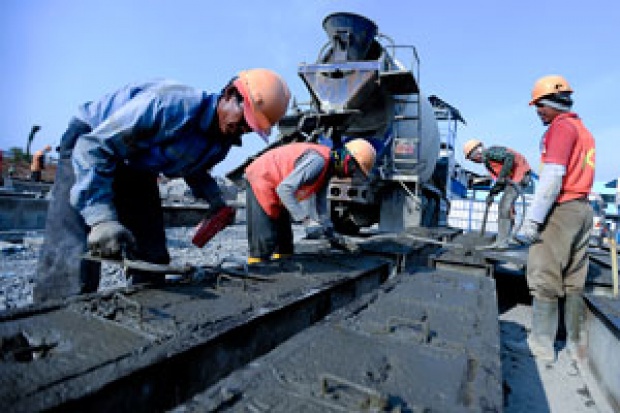Goodbye Masela
Translator
Tempo.co
Editor
Laila Afifa
Sabtu, 1 Agustus 2020 21:17 WIB

TEMPO.CO, Jakarta - The development of the Masela Block could be uncertain once more after Shell announced its intention to withdraw. This is the result of constantly changing government policies.
THERE is now a heavy price that must be paid for the decision by the government to change the Masela Block development scheme. As a result of forcing the liquified natural gas (LNG) processing facility to be built on land, the megaproject is now far behind schedule. It is now threatened with coming to a halt completely after Shell Upstream Overseas Services Ltd announced its intention to withdraw from Masela.
There have been rumors of Shell's withdrawal from the Abadi Field project in Maluku since the beginning of July. The Dutch company had announced its intention to divest 35 percent of its Masela Block participation rights to the Upstream Oil and Gas Special Regulatory Task Force (SKK Migas) and the energy and mineral resources ministry. This decision was a heavy blow for the government, which is trying to increase the flow of foreign capital in the middle of the Covid-19 pandemic.
The change of the gas development scheme from a floating refinery to a facility built on land four years ago left a big question mark. Poten Partners, the British consultant appointed by the government, concluded that the offshore option was cheaper and would result in more profits. However, the government insisted on the onshore option. Now it has been proved that this choice resulted in the costs of Masela being Rp73 trillion higher, namely US$19.8 billion (Rp289 trillion) compared with US$14.8 billion (Rp216 trillion).
The choice of this option also led to the project being delayed for three years. As contractors, Inpex Masela Ltd and Shell had to repeat all the processes from the start: from the revision of the development plan and the acquisition of land to preparing an environmental impact analysis and designing the engineering. The inconsistencies in policies wrecked the plan to develop the offshore refinery that had been agreed in 2010. If the offshore option had been continued, Masela would have come into production in 2024.
Unfortunately, the discussions over the Masela development plan have still been protracted even though Inpex and Shell have revised it. The energy ministry has found it difficult to accept the fact that building the facility on land is more expensive than the offshore scheme. The government finally agreed to this proposal last July. If everything had gone smoothly, the block with its 10.73 trillion cubic feet of reserves would only be able to start pumping gas in the second quarter of 2027. The delays in the Masela project have resulted in the state losing the potential income of at least US$3.6 billion, or around Rp50.5 trillion, every year.
With Shell's plan to withdraw, the development of this project has become even more chaotic. The government may well offer a tempting extension of the contract until 2055, but Shell has its own calculations. The constantly changing policies have led to the company striking Masela from its list of priorities. The collapse in the price of oil and gas since the beginning of the year has strengthened Shell's resolve because the economic value will not be achieved.
Shell's plan is bound to result in the project coming to a halt because it will not be easy to find a replacement contractor for a project this size. Any newcomer would have to provide around Rp100 trillion. With the global economy in tatters as a result of the Covid-19 pandemic, many companies will hold back, especially since the oil and gas business is also now at a low point. This situation is predicted to continue for up to 10 years.
On top of this is the problem of a current excess of global gas supplies that will make it difficult for any contractor to market LNG to potential buyers. Usually, new gas projects only start after an off-taker has been identified. This means that before it is clear who will buy the gas, Inpex and whoever its new partner is will not begin to develop the Masela project. This is the price that the government will have to pay as a result of economic projects being based on short-term political calculations.
Read the Complete Story in Tempo English Magazine




















